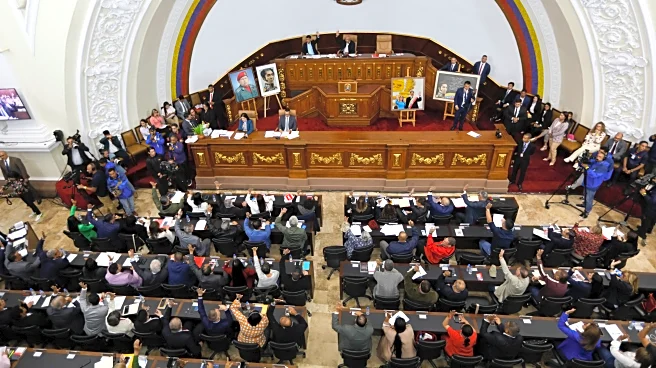What's Happening?
Senator Lindsey Graham has stated that President Trump is prepared to implement severe economic sanctions on Russia if President Vladimir Putin does not engage in discussions with Ukrainian President Volodymyr Zelenskyy. Graham has been advocating for a bipartisan sanctions bill that would impose steep tariffs on countries supporting Russia's invasion of Ukraine by purchasing its oil, gas, and other exports. The bill has significant support in the Senate, but President Trump has not yet endorsed it. Graham emphasized that if progress is not made by the Senate's return in September, the administration's alternative plan will be activated. This statement follows recent meetings at the White House involving Zelenskyy and European leaders, where optimism was expressed about potential talks between Putin and Zelenskyy.
Why It's Important?
The potential sanctions represent a significant escalation in U.S. efforts to pressure Russia economically and diplomatically. If enacted, these measures could severely impact Russia's economy and alter international trade dynamics, particularly affecting countries like China and India that are major consumers of Russian energy. The situation underscores the geopolitical tensions surrounding the Ukraine conflict and the U.S.'s role in attempting to broker peace. The sanctions could also test the unity and resolve of U.S. allies in Europe, who have shown support for the proposed measures. The outcome of these developments could influence global energy markets and international relations significantly.
What's Next?
As the Senate prepares to reconvene in September, the coming weeks will be crucial in determining whether President Trump will endorse the sanctions bill or if Congress will act independently. The international community will be closely monitoring any progress in negotiations between Putin and Zelenskyy. Should talks fail, the U.S. may proceed with imposing tariffs, potentially leading to retaliatory measures from Russia and affecting global economic stability. The situation remains fluid, with stakeholders awaiting further developments and potential shifts in U.S. foreign policy.











